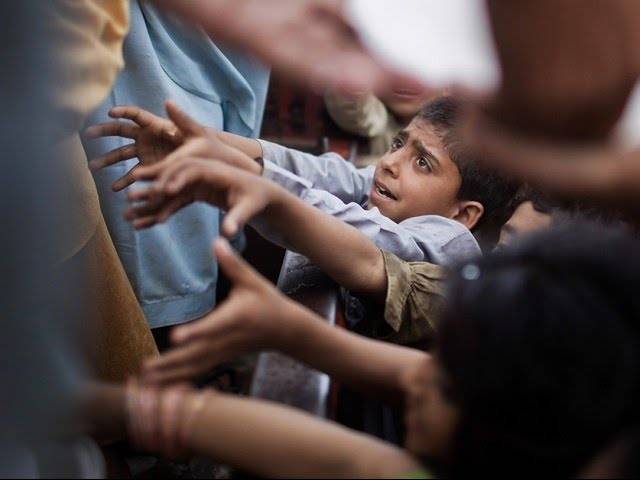Over 44% children in Pakistan under five are stunted due chronic malnutrition: Report
Shares

ISLAMABAD - Health experts Sunday said that over 44 percent children under five years are stunted in Pakistan due to chronic malnutrition. According to them, stunted children suffer delayed growth and their brains do not develop as they should and asked the authorities concerned to start an awareness drive for improving maternal and child health. They said that stunted children have seven month delay in starting school while they have low IQ and more likely to repeat a grade of school. Stunted children complete one year less of schooling and less likely to graduate high school, they added. They urged to start an advocacy drive to address the issue of children stunting for having improved child health and nutrition. They said stunting is impaired growth and development caused by poor nutrition, repeated infection and inadequate psychosocial stimulation. Dr Wasim Khawaja from Pakistan Institute of Medical Sciences (PIMS) said stunting is a result of chronic malnutrition which is defined by the World Health Organization as excesses or imbalances in a person's intake of energy or nutrients. He said stunting is the result of continued low intake of energy and essential nutrients. When children's usual intake is below their required level, it results in impaired growth, and hence short stature for their age, he added. He said there are multiple reasons for a child to get in the under-nutrition trap, and diarrhea is one of the major causes. Diarrhea leads to excessive loss of nutrients from body even though a child may have consumed sufficient quantity of calories or nutrients. Dr Sharif Astori from Federal Government Poly Clinic (FGPC) said when a child gets intestinal infection due to a bacteria or other micro-organism, he or she develops diarrhea.
These bugs attach themselves to the lining of the intestine, and interfere with the absorption of water and other essential nutrients. There are many reasons diarrhea may happen and most of the times, the body's natural protective mechanism helps recover the disease and overcomes the micro-organisms, he added. He said Zinc is beneficial health effects for all ages and especially in children as it improves immune system's capacity to fight invading bacteria and viruses. Zinc improves growth and development in children during pregnancy, infancy, and childhood, he added. When contacted, an official from the Ministry of National Health Services, Regulation and Coordination said no one can disagree that nutrition is one of the most important factors that need to address in the first days of a child's life as it is extremely critical to their growth. "We are working to achieve zero stunting with better use of our healthcare workers.
These are the people who are the closest to households and they develop a rapport with and are trusted by the people in the community. The intervention of health workers makes a significant impact in childhood nutrition, especially in the child's first three years." He said that Prime Minister Imran Khan in his opening speech highlighted the issue of stunting in Pakistan which shows high commitment of the present government towards addressing nutrition issues. His statement has been taken very positively by public health professionals while terming it as good initiative in an environment where health has not been the priority of the previous governments which is evident from a meager 2.9% of Gross Domestic Product spent on health in Pakistan in 2014, he added. - APP
